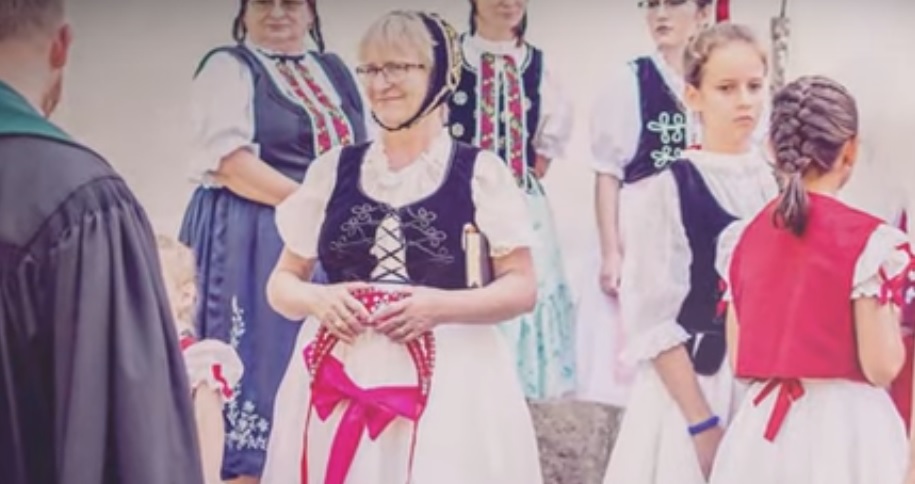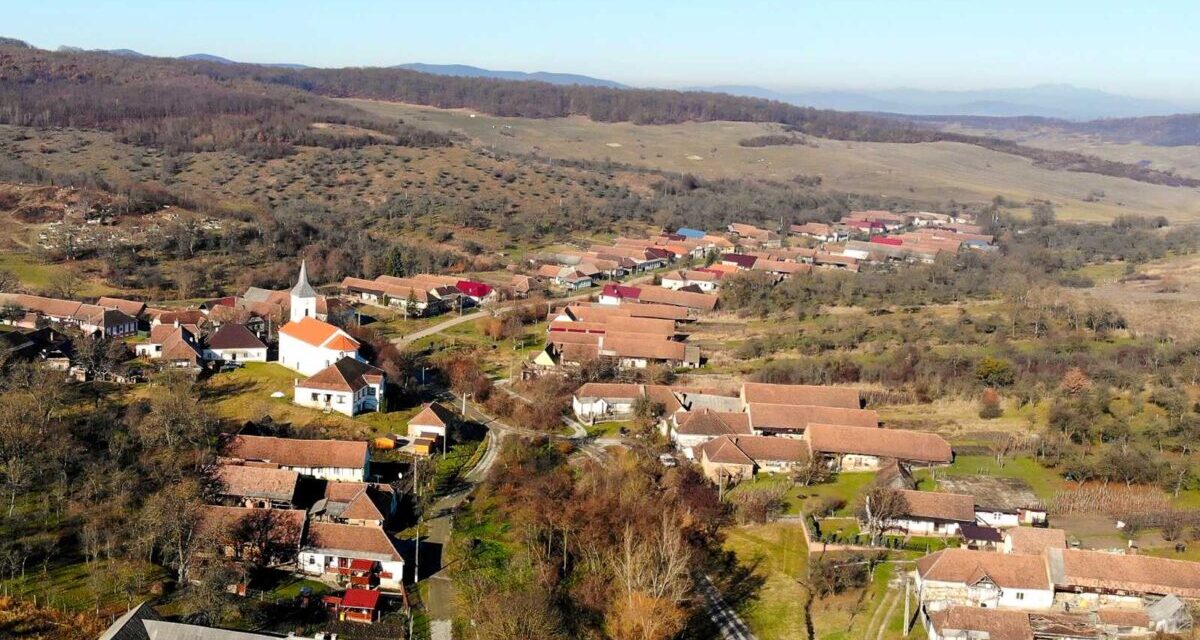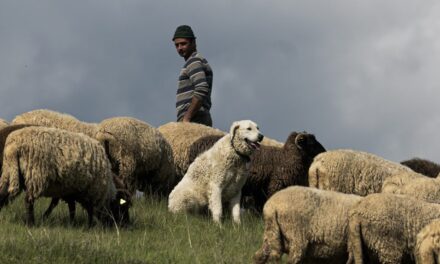The settlement, located 24 kilometers from Beszterce, in the valley of the Sajó stream, is still inhabited by Hungarian native speakers, whose motto is "Zselyk was, is and will be".
Since 2015, on November 15, the anniversary of the birth and death of the Transylvanian prince Gábor Bethlen, we have celebrated the day of the Hungarian diaspora. On the occasion of this, we visited Zselyk in Beszterce-Naszód county. The locals try to preserve the village's past and character through various events, so every year they organize a youth camp, a children's camp, a children's day, a family day, and the settlement also has a dance group that preserves and popularizes the typical Zzelyk dance.
Csaba Zoltán Tóth, the local pastor and deputy priest, introduced us to the history of the village. As he said, you should know about the history of Zselyk that the first written record dates back to 1332, when the papal tithe list mentions the settlement for the first time. It is a settlement created by Saxons, and even its name is disputed, whether it is of Saxon origin or inherited from the Slavs.
"It is a fact that it was inhabited by Saxons, but according to written records, in 1552 most of the settlement interestingly spoke Hungarian as their mother tongue. Of course, it kept the Saxon character, and since then, for example, the national costume has preserved this. The pride of the village is also that it has been Lutheran since the time of the Reformation, and has steadfastly preserved this since then, as well as the Hungarian mother tongue.
the pastor pointed out.
We also learned from Csaba Zoltán Tóth that there are currently several associations that, by organizing events, strive to preserve the character and historical past of the village, such as the Pro Zselyk Association. Within this framework, the village's dance group also operates, which preserves and popularizes the typical dance from Zzelyk, and in addition, through various events - such as the youth camp, children's camp, children's day, family day - they try to present "their little village", its Saxon character and Hungarian image as well.

Source: Maszol/Screenshot
They learned the old order
László Károly Borsos, a retired teacher, grew up in Zselyk, then moved back to the same place when he retired. As he put it, survival was always important to the people of Zzelyk, and according to the legend, the kind-hearted giant and the fairy, who breathed life into the toys made of salt, always looked after this community.
"This caution was always included in the stories of our grandfathers, fathers, and parents. Here we learned the old order, that the springs in the fields should be cleaned in the spring, that there should be nice cold water in the middle of the summer work, that the order of the village should be respected, and that everyone should be greeted properly, because these were all important elements."
he recalled.
According to him, growing up in Zselyken "gave him such basic knowledge" that he could then continue to feed on, and he believes that this helped him find his place in an increasingly noisy, increasingly fast-paced life. László Károly Borsos loved his birthplace and village so much that he could not imagine that he would ever "leave the land fallow" there, which is why he moved back. But according to him, other people in this village are like that, for example, those who move to Beszterce, or to another county, or even abroad, always say that they are going home when they talk about Zselyk, and according to László Károly Borsos, "this coming home is what keeps this community alive".
He believed that living in Zsely now is very calm and pleasant, but there is also a bit of sadness, since the former community that lived there was able to prepare everything for itself, produced its own needs, but today the residents prefer to buy the same things from stores. According to the retired teacher, the most important moment for the community is the Sunday bell ringing and service, where they see each other and make sure who was able to leave, and he believes that this is partly what keeps the community together, which is still viable.
The village is full of life on weekends
Pastor Csaba Zoltán Tóth also spoke about how important the relationship between Zselyk and Beszterce is, since the Evangelical-Lutheran parish in Beszterce is associated with the mother parish in Zzelyk. In fact, Zselyk forms the nucleus of the elderly, which is why they insist that the mother parish stay there. In Besztercé, the core is made up of young people, but they are closely related to each other, since both communities "actually form one big family", and that is why the village is full of life on weekends, when the young people, "the younger members of the family", so to speak, the Bészterce congregation returns home and visits home.
According to the pastor, at the same time, the close relationship of these two congregations gives the legitimacy of this "was, is and will be", because they preserve the legacy of the past in Zselyken and pass it on not only to the present, but also to the future generation. Various developments and investments are underway in both places, in Zselyke they are trying to renovate the parish and maintain the church, to create a youth camp center, and in Besztercé this year they finally managed to build an educational center combining a nursery school and a kindergarten, and at the same time, the construction of a church center is also underway.
"For us, the fact that Besztercén has a nursery and kindergarten that works is a huge joy, since the preservation and nurturing of the Hungarian language here, scattered here, is perhaps the most important aspect for all of us. And as long as 60-70 children take part in the afternoon session in Bestztercé, we expect the same number at the camp in Zzelyk, for example" -
said the pastor. He added: in his opinion, all of this can be attributed to "divine blessings" and he sees these connected occasions as a gesture of the will to live.
It is natural for the children to attend Hungarian schools
While visiting the education center in Bészterce, we also managed to talk to a mother. Anyway, the center was inaugurated at the end of October, and the institution has been officially operating since then. According to teacher and mother Tünde Bocskai, all people living in scattered places would need such an institution, since without it they would not be able to survive.
"If I also went to a Hungarian school, then it is natural for me that my children should also go there, I can't imagine any other possible way. So I hope that there are many more parents out there who think the same way, because then this center will be filled with life"
- He told. He added: in his opinion, there are also advantages to living in such a tight, small community, for example, the members of the community usually know each other well, and asking for and giving help somehow works faster and more efficiently, and this can be to the benefit of the children and the adult community as well. translate.
Tünde Bocskai said that he would like most of all for the people living in the scattered areas to feel that
"they are no less Hungarian than those who live in the block or in the motherland", and on the day of the Hungarian diaspora, he feels that perhaps they will be paid a little more attention.
Anna Lőrincz, Zoltán Varró-Bodóczi
The article was published on November 15, 2021 on Maszol.
Featured image: Maszol













